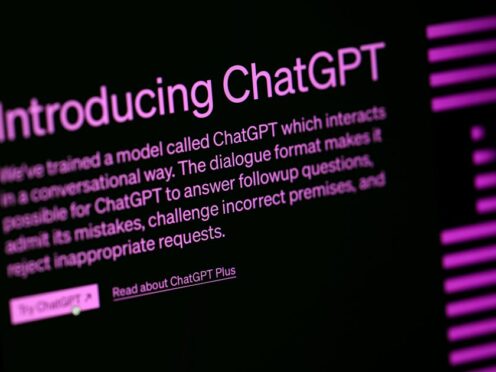
ChatGPT maker OpenAI has made the generative AI chatbot accessible without an account for the first time.
The company said it was “making it easier for people to experience the benefits of AI” without having to sign up to do so.
According to OpenAI’s own figures, more than 100 million people across 185 countries use ChatGPT every week.
ChatGPT sparked the current wave of generative AI products when it launched in late 2022, allowing people to create content from simple text prompts and has since seen the likes of Google, Microsoft, Meta and others begin rolling our their own chatbots and investing heavily in the technology, which is seen by many as the key innovation of this decade.
In a blog post announcing the wider availability of ChatGPT, OpenAI said it was rolling out account-free access “gradually”, but the aim was to “make AI accessible to anyone curious about its capabilities”.
As of Tuesday afternoon, account-free access has not become available in the UK.
The company said it had also introduced “additional content safeguards” for this new experience, including “blocking prompts and generations in a wider range of categories”, but did not specify what the categories are.
The blog post also confirmed that those who used ChatGPT without an account would not have the ability to save and review their chat history, share chats, or access additional features such as voice conversations or customising their experience.
However, those using the app without an account will still be able to opt out of sharing their conversations with OpenAI for use in AI model training.

Enjoy the convenience of having The Sunday Post delivered as a digital ePaper straight to your smartphone, tablet or computer.
Subscribe for only £5.49 a month and enjoy all the benefits of the printed paper as a digital replica.
Subscribe